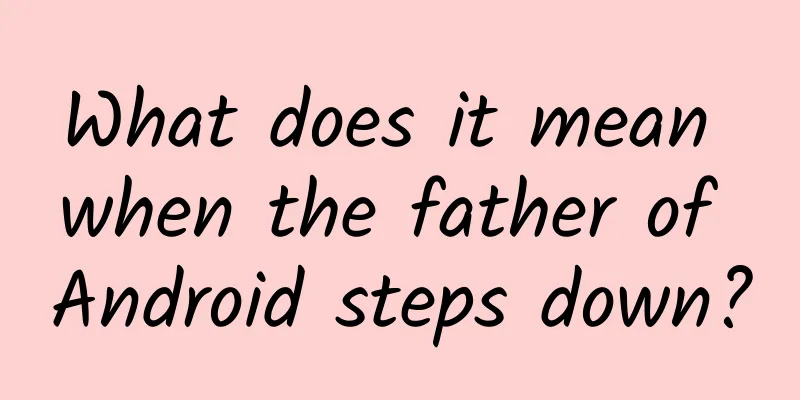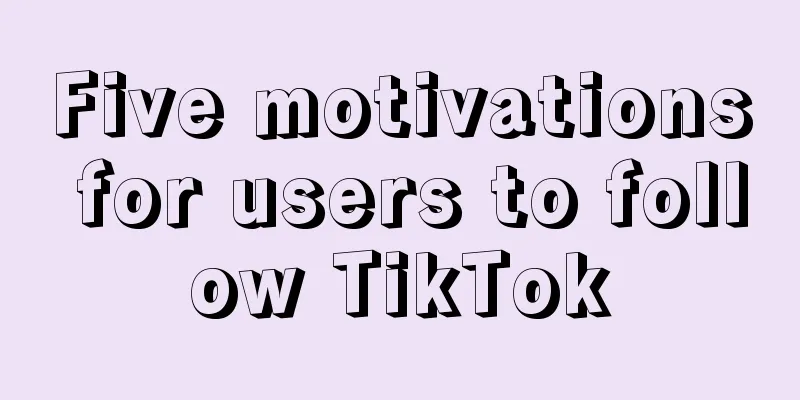What does it mean when the father of Android steps down?

|
Early this morning Google dropped a bombshell telling us that Andy Rubin, the father of Android, will step down and Android will be led by Sundar Pichai, who is currently mainly in charge of the Chrome business in the company. Larry Page's official blog explained this as follows: "We have achieved all we ever wanted with Android, and as a strong team, Andy has decided it is time to hand over power and start a new chapter at Google." When this news came out, many people were most concerned about what this change meant for the future of Android? Rubin founded Android in 2003 and has remained the father of Android since its acquisition, serving as senior vice president of mobile and digital content at Google. His successor, Sundar Pichai, has been in charge of Chrome and Chrome OS as well as many apps, including Gmail and Google Calendar.
Chrome OS and Android together from now on? People have long been asking whether the two will merge, and Picha’s appointment is like adding fuel to the fire, especially with the recent release of the touchscreen version of the Chromebook Pixel computer. In an interview with Wired, he said, “This move may make apps look more and more similar, and users don’t have to think too much about the technology behind them.” In an interview with AllThingsD.com, he said, “After the release of touchscreen computers, the boundary between (Android) and tablets has blurred.” Even if Rubin really gave up his position for the next greater goal, there are still many candidates who can take over, but why did he let the person in charge of Chrome, Chrome OS and apps take over? What does this portend? What are the other great things that Page mentioned? Perhaps the overlap between Android and Chrome will be more obvious. The idea of running Android apps on the Chromebook Pixel computer will definitely exist. At that time, Chrome OS may bring some fresh elements to Android. This seemingly reasonable assumption may just be to make the adjustment less drastic one day. This can make Google Play more unified with existing platforms. For example, the default browser on Android is Chrome, but it was developed by a different team from Android. Last March, Google added digital content to Google Play, expanding from simple apps to movies, music, and books, so that users can use the content on both PC and mobile. Chrome Web Store, as Google's previous App store, runs the Chrome browser and Chrome OS operating system. After Larry Page took over as CEO again, he aimed to better integrate its ecosystem and create a more intuitive experience. Now with the Rubin-Pichai reshuffle, we can see that the two different platforms are becoming more consistent. Many people will say that time will tell, but that is as good as saying nothing. The key point we need to understand now is that everything is possible, and it won’t be long before there are other claims. Via computerworld |
<<: Android creator Andy Rubin: a lone ranger among geeks
>>: Steve Jobs once scolded the father of Android: "You are arrogant and you always copy me."
Recommend
WeChat mini program bargaining software, how to make the WeChat mini program bargaining software?
WeChat mini program bargaining software, how to m...
iOS 16.5 is here, with many new features
Apple pushed the iOS 16.4 Beta 1 update last week...
16 Awesome E-Commerce Conversion Rate Optimization Strategies
This article introduces 16 optimization strategie...
5 steps + 7 tips to teach you how to create high-conversion information flow copy!
In the past two years, information flow advertisi...
How do technical leaders transform themselves as they advance in entrepreneurship?
[[156060]] When a product is created from scratch...
Breast cancer rapid ranking SEO optimization case training!
The latest SEO training case: Darwin's theory...
Sharing of advertising cases on WeChat Moments - wedding industry!
Brand Name: MuseMarry After one week of launch, c...
Douyin e-commerce video publishing frequency limit description
Today, Douyin E-commerce released the "E-com...
How much does it cost to attract investment for the Chaohu Specialties Mini Program? What is the investment quotation for Chaohu Specialties Mini Program?
How much does it cost to attract investors for th...
Cook says Apple is considering allowing iOS users to delete pre-installed apps
[[149443]] According to foreign media reports, Ap...
Military Advisor's Mansion Liu Jinyi Yin Pan Qi Men Elementary and Intermediate Class
Resource introduction of Liu Jinyi's Yin Pan ...
Example explanation: B-side TV advertising
Based on his actual work experience, the author o...
Learning skateboarding from scratch - from beginners to fancy tricks
Learning Skateboarding from Scratch - Introductio...
How much should product and operations professionals know about data analysis? We gave the following answers
Data analysis capabilities are important for both...
Zero-based easy entry to the way of love 2.0
1. Wrong concept of love: thinking that only mone...


![Emotional experts teach you how to become a good chatterbox, learn how to date, and master the secrets of getting along with girls [audio course]](/upload/images/67cc338a7a57c.webp)






